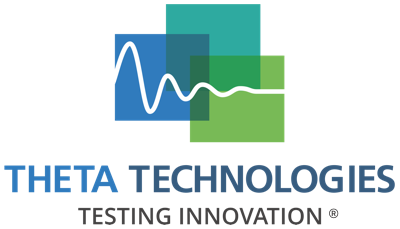Theta Technologies and Plymouth Science Park: Pioneering NDT for additive manufacturing with flaw seeding.
Topics
Flaw creation in additive manufactured metals
Industry Applications
Aerospace, Defence, Motorsport, Automotive, Oil and Gas, Medical, Power Generation, Renewables, Research Institutes.
The validation of non-destructive testing and inspection methods for additive manufacturing has, to date, prevented the widespread adoption of the manufacturing method for critical applications. Theta Technologies, in collaboration with Plymouth Science Park has pioneered a unique flaw-creation technique that looks set to aid the validation of non-destructive testing for AM.
‘Real-world’ flaw creation now possible in additive manufactured parts thanks to Theta Technologies.
Theta Technologies, in collaboration with Plymouth Science Park, has pioneered a technique for flaw induction into AM metal parts. This innovative approach not only accentuates the sensitivity of Theta Technologies’ non-destructive testing (NDT) method but also lays the foundation for validating other NDT techniques. These advancements are pivotal in propelling the momentum for large-scale AM production.
The perfect collaboration to advance AM
The collaboration originated due to an established working relationship between Plymouth Science Park, which operates as a key knowledge exchange for SMEs looking to adopt additive manufacturing, and Exeter Science Park, home of Theta Technologies. When asked about the collaboration, Senior Digital Applications Engineer at Plymouth Science Park, Jacques Wood, explained why it was such a perfect match. “With the facilities that are available to Theta Technologies down the road at Plymouth Science Park, we are able to utilise our AM technology to produce something bespoke for the validation of RD1-TT”.
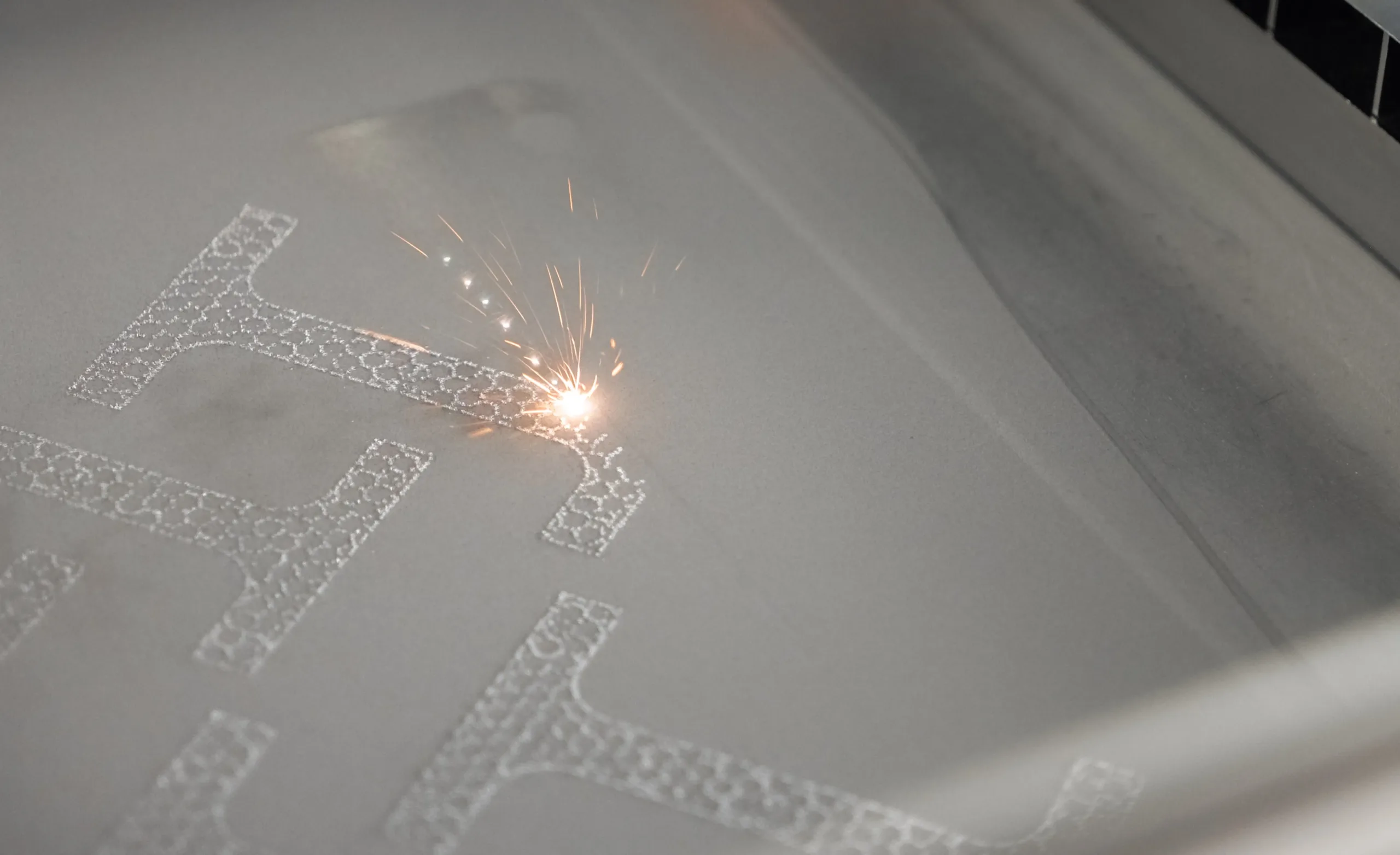
The imperative of real-world flaws in AM parts.
For the validation and certification of NDT methods, the ability to produce and access AM parts with known real-world flaws is paramount. To validate with utmost confidence, it’s essential to demonstrate the test method on a statistically significant number of parts, each possessing flaws of identical morphology. However, the production of multiple samples with known flaw conditions has historically been a deterrent to the evolution of NDT technologies.
Adoption of additive manufacturing
Chief Technical Officer of Theta Technologies, Professor James Watts, expressed the importance of this revolutionary development. “For additive manufacturing to be truly adopted within critical applications like aerospace, it’s really important that the end users can take a part and have a really good confidence that the part is flaw-free – typically with non-destructive testing. The difficulty with additive manufactured parts is that when the design engineers take advantage of the flexibility with AM, the traditional NDT techniques just don’t work anymore”.
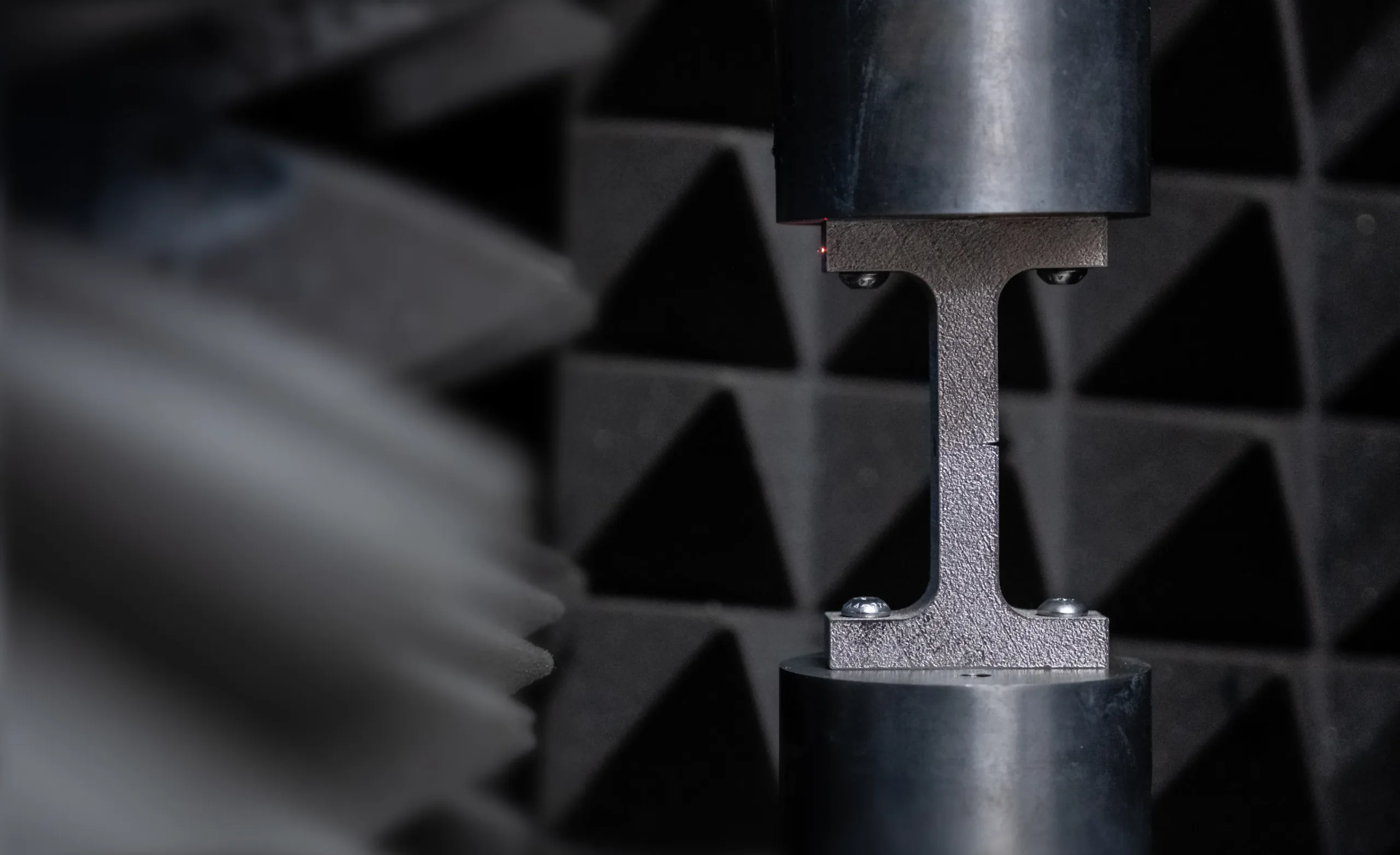
Embracing destruction to facilitate flaw-detection
Addressing this challenge head-on, Theta Technologies has recently unveiled a method that facilitates the creation of minute cracks, termed “contact cracks”, in AM parts. This systematic solution is both swift and cost-effective, offering the potential for mass production of parts embedded with similar, known flaws. But why is this necessary? James added “One of the main challenges for additive manufacturing is getting samples that have representative flaws in them. There are very few techniques out there that can produce cracks that are truly representative of those that might happen in a real component so they can be used to calibrate non-destructive testing techniques.”
Capitalising on experience
The technique capitalises on the resonant nature of metal parts, an area where Theta Technologies boasts a commendable track record. To expedite the flaw seeding process, heavy masses, referred to as ‘bobs’, are affixed to both ends of the part. Additionally, a notch or stress raiser is intentionally incorporated on the part’s surface. For AM parts, this addition is seamlessly integrated into the CAD file governing the AM build.
Drawing from their extensive experience in stimulating components of diverse materials into controlled resonance to pinpoint internal flaws, Theta Technologies has emerged as a catalyst for these potentially transformative advancements in NDT for AM. The profound understanding of leveraging a resonance-based system for controlled flaw creation marks a monumental development.
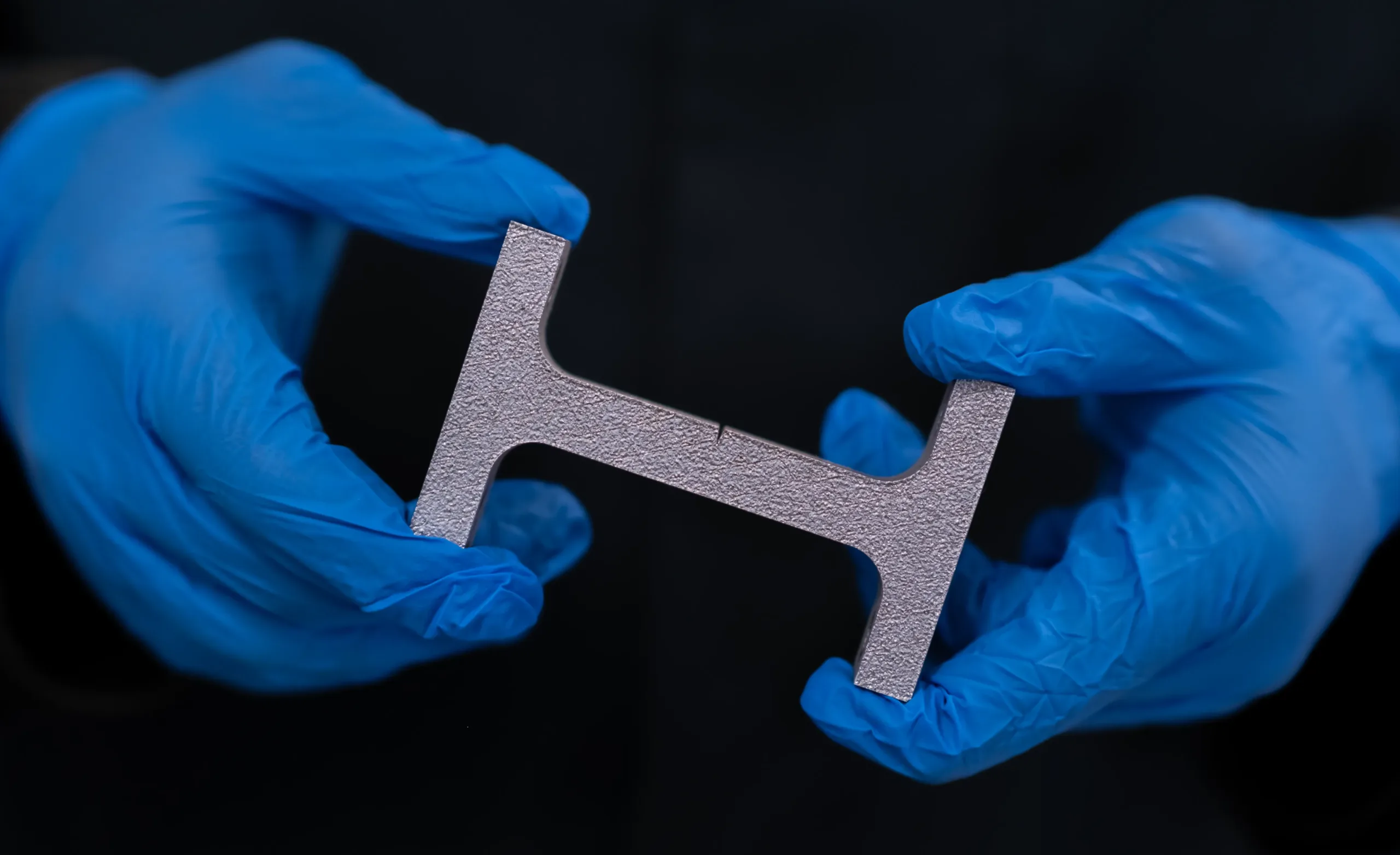
The flaw-seeding process
When the assembly – comprising the part and bobs – is driven into resonance, it experiences energy levels exponentially higher than those encountered during a standard nonlinear resonance non-destructive test in RD1-TT. Consequently, a crack emanates from the notch, induced by the immense stresses exerted by the weight. Within a matter of minutes, a laboratory-standard, controlled test piece is crafted.
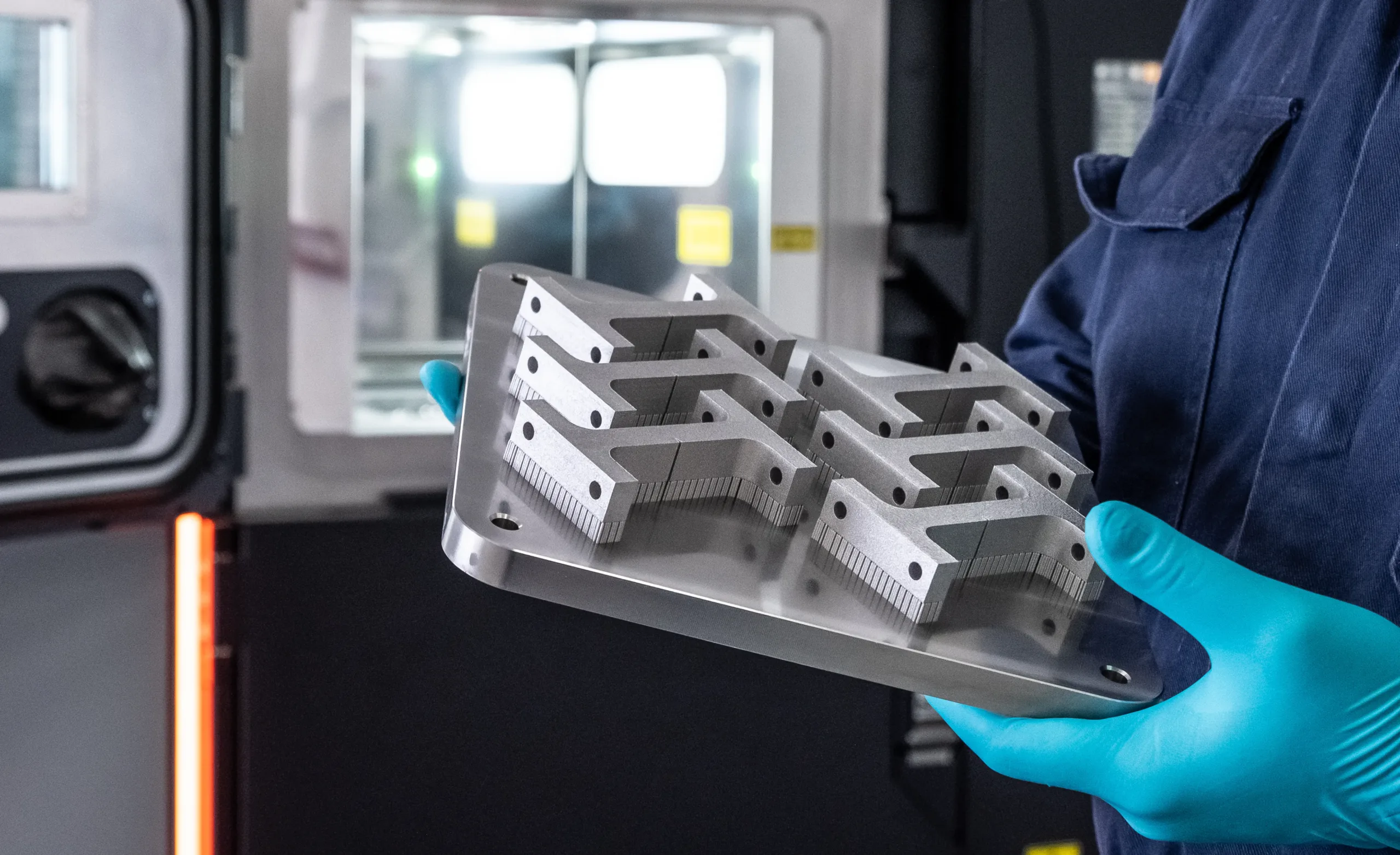
Eye-opening potential for additive manufacturing
With a wealth of experience working in AM, Jacques was asked for his thoughts on what Theta Technologies’ non-destructive testing solution could do mean for the industry. “It’s been really eye-opening to see that there is a proper validation piece of equipment that can disrupt the market, especially with regards to making sure that people can rapidly validate components in AM.”
Witness RD1-TT in action at Formnext 2023
You can see RD1-TT, Theta Technologies’ non-destructive testing solution, in action at this month’s Formnext event in Frankfurt, Germany. Book an appointment with a member of the Theta Technologies team at a time that suits you by visiting our booking page.

Talk to
Our Team of
Technical Specialists
Connect with our team of technical experts today and explore how RD1-TT can help revolutionise your additive manufacturing processes.
Theta Technologies Limited

Address
Theta Technologies Limited
3 Babbage Way
Exeter Science Park
Clyst Honiton
Exeter
EX5 2FN
United Kingdom
Terms & Conditions Privacy & Cookie Policy Anti-Slavery Policy © Theta Technologies. 2023
